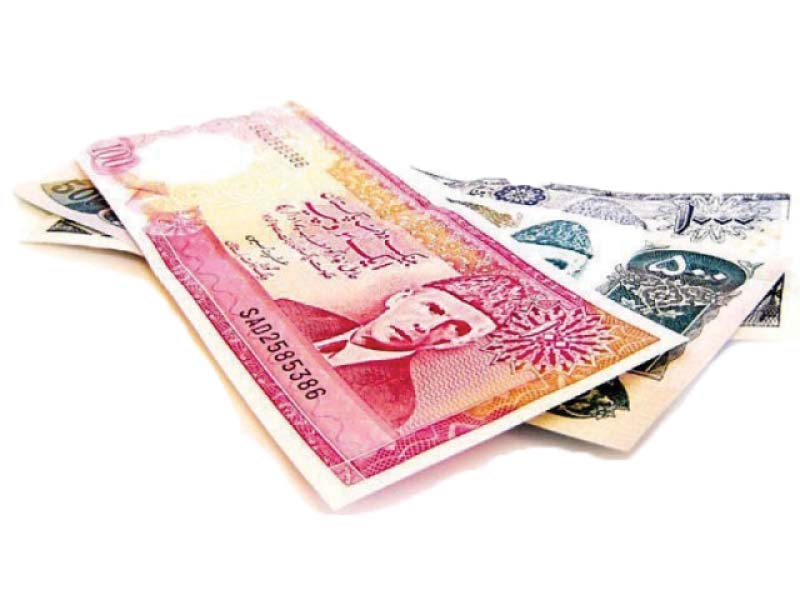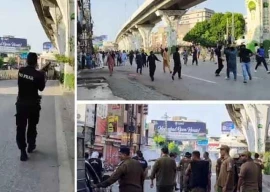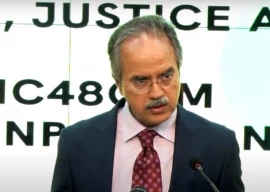
The decision by the governments of Khyber Pakhtunkhwa and Punjab to grant executive allowances has put the federal government of the PTI at a disadvantageous position.
The provincial governments went ahead with their plans to dole out billions of rupees among civil servants despite the displeasure publicly expressed by PM Khan.
Adviser to Prime Minister on Institutional Reforms Dr Ishrat Husain has proposed giving the executive allowance, according to sources in the Ministry of Finance.
In a related development, PM Khan on Tuesday also setup a committee under the chair of Dr Husain to review the possibility of extending the retirement age of civil servants by three years to 63.
The other members of the committee are secretaries of Defence, Finance and Establishment Division. The KP government has already increased the retirement age to 63 but the finance ministry has not yet endorsed the proposal.
The sources said that the proposal to grant executive allowance was under active consideration and it will be placed before the secretaries Committee in its next meeting.
They said the finance ministry was currently reviewing the financial impact of the executive allowance, which may run into billions of rupees. The allowance has been proposed for grade 17 to 22 cadre officers, serving in the Pak Secretariat – the seat of the federal bureaucracy.
Last month, the Punjab government gave the executive allowance for the civil officers appointed on the cadre post. The civil officers are now entitled the executive allowance equal to 1.5 times of their basic salary, according to the media reports.
But the proposal to give similar allowance to federal bureaucracy may face resistance from Prime Minister Imran Khan, who is also in-charge Finance Minister. PM Khan has enforced austerity policy to cut expenditures due to the weak fiscal position of the federal government.
In the budget, the PTI government had announced a 10% increase in the salaries of grades 1 to 16 officials and 5% raise had been given to the officers serving in grades 17 to 20. No raise had been given to the government employees serving against two highest basic pay scales of grades 21 and 22.
But the increase in salaries was not enough to absorb the full impact of the surge in income tax liabilities. The take-home salary of a majority of the civil servants has slightly reduced despite a rise of 5% to 10% in their salaries in the federal budget due to a surge in income tax liabilities. The take-home salary of the majority of officers reduced from Rs3,000 to Rs15,000 per month.
Due to an increase in inflation, caused by currency devaluation and the imposition of additional Rs734 billion in taxes, the purchasing power of a common man has significantly shrunk in the past year.
The sources said that it has become impossible to attract bureaucrats from provinces after the huge difference in salaries. They claimed that the financial impact will be neutralized after abolishing about 115 vacant posts from grade 17 to 22. The officers' annual wage bill currently stands at Rs45 billion.
The federal bureaucracy was also facing problems due to the NAB's anti-corruption drive that has adversely affected the official day-to-day work.
The sources said that only 1,355 officers will be the beneficiary of the planned move. They said the ratio of the executive allowance will be determined while keeping in mind available fiscal space. Unlike the provincial government, the federal government faces severe fiscal constraints.
In 2012, Pakistan Peoples Party (PPP) government had given 30% secretariat allowance to the federal bureaucrats several months before the end of its term. But the concerned departments' officers filed petitions in Islamabad High Court to claim similar benefits.
The government salary structure is highly distorted and different departments and institutions are already withdrawing special allowances like judicial allowance, special war-related allowance and a special allowance of FBR, NAB, FIA etc.
The PPP government had also given a car monetization allowance to the bureaucrats serving in grade 20 to 22, ranging from Rs68,000 to Rs97,000 per month.
The allowance had been given on the assumption that the bureaucrats would stop misusing the official vehicles but a majority of them are availing both – the allowance as well as the officially-maintained vehicle.
The government has also not made the car allowance as an overall part of the salary aimed at avoiding higher tax brackets. Instead, the bureaucrats pay 5% tax on the car monetisation allowance as a separate pool.

















COMMENTS
Comments are moderated and generally will be posted if they are on-topic and not abusive.
For more information, please see our Comments FAQ